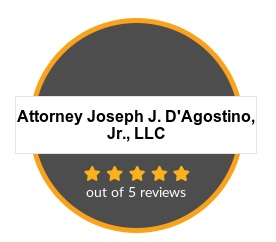Small Business Owner Bankruptcy Options
Small businesses have three potential bankruptcy options. Having an experienced bankruptcy lawyer on your side to guide you will make getting through the process as painless and stress-free as possible. Attorney Joseph J. D’Agostino has been helping Connecticut businesses in Wallingford and Stratford with strategic bankruptcies since 1993.
Chapter 7 – Chapter 7 is a bankruptcy option for debtors that do not have the means to restructure their obligations and continue in business. In Chapter 7, a trustee is appointed, available assets are sold, and creditors are paid to the extent funds are available. Partnerships, limited liability companies, and corporations are all eligible to file bankruptcy under Chapter 7. Depending on their income, individuals who own and operate small businesses as sole proprietorships also may file bankruptcy under Chapter 7. To learn more, see the articles in Chapter 7 for Small Business Owners.
Chapter 13 – Chapter 13 can be a restructuring option for small businesses owned and operated by individuals (a sole proprietorship). Only individuals may file Chapter 13, so it is not an option for businesses operated through partnerships, limited liability companies, or corporations. Chapter 13 eligibility is also subject to debt limits. As of April 2019, an individual owing more than $419,275 for unsecured debt and $1,257,850 for secured debt can’t file Chapter 13. (The limits for cases filed before April 1, 2019, are $394,725 in unsecured debt and $1,184,200 in secured debt.) To learn more, see the articles in Chapter 13 for Small Business Owners.
Chapter 11 – Another option for a small business is Chapter 11 bankruptcy. Generally, small businesses shy away from Chapter 11, because it is expensive, risky, time-consuming, and complex. Chapter 11 is the only bankruptcy option, however, for a small business seeking to restructure and continue in operation if it is owned by a partnership, limited liability company, or corporation. Chapter 11 is also the only bankruptcy option for individual business debtors who want to reorganize but owe too much money to meet Chapter 13’s eligibility requirements.
What Is Chapter 11 Bankruptcy?
Chapter 11 is part of the United States Bankruptcy Code. Chapter 11 generally gets in the news when major corporations — like General Motors, K-Mart, and United Airlines — have financial problems and turn to the bankruptcy courts for help. Most Chapter 11 cases, however, are filed by businesses and companies that are far from being household names.
Under Chapter 11, a debtor can restructure its finances through a plan of reorganization approved by the bankruptcy court. By reducing obligations and modifying payment terms, a Chapter 11 plan can help a debtor balance its income and expenses, regain profitability, and continue in operation. Under Chapter 11, a debtor also can sell some or all of its assets so it can downsize its business if necessary or pay down claims that it owes.
Special Provisions for Small Business Debtors in Chapter 11 Cases
For the most part, small businesses and major corporations have to follow the same rules and meet the same requirements to reorganize under Chapter 11. There are, however, some special provisions for small business debtors that can help them fast track through the Chapter 11 process and reduce legal and other restructuring expenses.
Under the Bankruptcy Code, a Chapter 11 proceeding filed by a “small business debtor” is considered to be a “small business case.” A “small business debtor” is a person or entity who: (1) is engaged in business or other commercial activities; and (2) owes no more than $2,725,625 as of April 1, 2019 ($2,566,050 for cases filed through March 31, 2019) in total claims, excluding obligations owed to insiders such as family members of the business owners.
Here are some other special procedures for small business Chapter 11 cases:
No Creditors’ Committee. Ordinarily, in Chapter 11 cases, a committee is appointed to represent the interests of unsecured creditors. A creditors’ committee can retain attorneys and other professionals at the debtor’s expense, which can significantly increase the cost of Chapter 11 reorganization. In a small business case, the bankruptcy court can order that prevents a creditors’ committee from being appointed.
Additional Filing and Reporting Duties. Small businesses are subject to some reporting and filing requirements that are not imposed on other Chapter 11 debtors. A small business debtor, for example, must attach its most recently prepared balance sheet, statement of operations, cash flow statement, and federal tax return to its bankruptcy petition when it files for Chapter 11 relief.
Additional U.S. Trustee Oversight. The United States Trustee’s office is the agency that oversees bankruptcy cases on behalf of the Department of Justice. Under the bankruptcy laws, small business cases are subject to more oversight by the U.S. Trustee’s office than other Chapter 11 proceedings.
Plan Deadline. Generally, there is no deadline for filing a Chapter 11 plan unless set by the bankruptcy court. In small business cases, however, the debtor has only 300 days to propose a Chapter 11 plan. The court can extend the 300-day deadline, but only if the debtor proves that it will be able to obtain approval of a plan within a reasonable period of time.
Longer Exclusive Period to Propose Plan. In some cases, creditors file competing Chapter 11 plans. Chapter 11 plans filed by creditors typically provide for the liquidation or takeover of the debtor’s assets and business. The debtor usually has the exclusive right for 120 days after it files bankruptcy to propose a Chapter 11 plan. In small business cases, the exclusivity period is extended to 180 days. The longer exclusivity period reduces the risk to the debtor of having to litigate competing plans and potentially losing its business.
No Disclosure Statement. Ordinarily, in Chapter 11, the debtor must prepare a disclosure statement, submit it to the bankruptcy court for its approval, and circulate copies to creditors and other parties in interest. Disclosure statements in Chapter 11 cases are similar in concept to prospectuses for stock offerings. They must provide extensive information about the debtor and proposed plan and are often expensive to prepare. In small business cases, the bankruptcy court can waive the disclosure statement requirement, which can significantly expedite the reorganization process and reduce legal and other costs.
Contact Small Business Bankruptcy Attorneys Joseph J. D’Agostino
At Attorney Joseph J. D’Agostino, Jr., LLC, we have been helping individuals and businesses achieve debt relief through bankruptcy since 1993. We are exclusively focused on bankruptcy and debt relief law and are dedicated to helping our clients realize their financial goals.
Contact us or by telephone at 203-377-9994 or 203-265-5222 to speak with an experienced Connecticut Bankruptcy Lawyer. For your convenience, we maintain two offices, one in Wallingford and one in Stratford.

.png)


